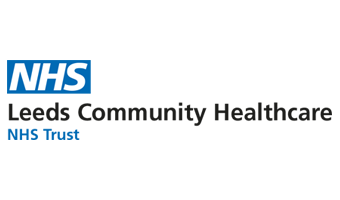Health Care First
This is a great fridge monitoring system for healthcare environments. It doesn’t require any link to the NHS network, it monitors fridge temperatures at regular intervals 24 hours a day and automatically uploads the data to the cloud – we have a simple dashboard to access this. It’s quick, easy and reliable, removing the need for manual checks, and means all our fridge data is in one place instead of several different locations – great when it comes to annual CQC inspections. What’s more, if a fridge or ambient area like a dispensary does go out of temperature range, it sends alarms via SMS, email or voice call, so our fridges are safely monitored even when the premises are not in use. I would recommend it for speed, accuracy and simplicity.- Lee Duker, IT Manager & Estates, Health Care First

About Health Care First
Health Care First Partnership is a multi-site GP practice serving over 32,000 patients in the Wakefield area of West Yorkshire. The practice prides itself on delivering the highest standards of care to the community and has recently won a Wakefield General Practice Hero Award as well as a Hidden Heroes award for Outstanding Performance during the Pandemic, for continuing to provide exceptional services to the local community, without compromise.
Saving time, money and effort
Last year, Lee Duker, IT & Estates Manager for the practice, recognised the need to upgrade the refrigerator monitoring systems used across the Health Care First group. Lee had been looking for an effective and affordable standalone system capable of monitoring fridges and ambient areas automatically, removing the need for manual checks. Perhaps most importantly, the system needed to be a standalone option and not require connection to the practice’s NHS network link, for reasons of security and data protection.
At the time, Health Care First was operating two separate systems at all seven locations. The first was a system where all fridge temperatures had to be physically checked twice daily, with temperatures recorded on a manual system. As a backup, the fridges also contained small data loggers, with data downloaded every week before being manually updated to a spreadsheet.
This combined operation required a significant amount of valuable staff time and effort and did not provide for any form of alarm in the event of a fridge or ambient area going out of temperature range for any reason. With these appliances sometimes containing many thousands of pounds’ worth of drugs, there is a very short time window when the fridge is out of temperature range before recommendations dictate that these have to be destroyed.
The RemoteM solution
Lee approached RemoteM following recommendations from a colleague. Trials began initially on a key site, covering two fridges and an ambient area. RemoteM installed a base station at the practice and nodes in two fridges and the dispensary area where drugs are stored.
This standalone system works using battery powered wireless communications and does not require a connection to the practice’s internet service. Data recording and alerts continue even in the event of a lengthy power failure or outage. If temperature fluctuation occurs, the system generates immediate SMS, email and/or voice call notifications to designated individuals – of particular use for GP practices which may not be staffed in the evenings and at weekends.
Installing RemoteM
Lee says the RemoteM system is easy to install and use. Lee is an IT specialist, but nurses across the practices now have logins and are also comfortable with using the process, which brings all relevant data together in one place on a special online ‘dashboard’ accessible from almost any device.
Detailed reports can be produced which will prove particularly useful for the annual CQC infection control audit, which also looks at temperature regulation compliance for fridges.
On request, RemoteM have also tweaked the system slightly to match Health Care First requirements, adding a ‘comments’ section which enables the nurses to add in a piece on the reasons why each alarm is triggered; information which is required by the CQC.
Following the successful trials, the RemoteM system is now being installed across all seven Health Care First locations, in fridges and also in the dispensary area, where the node has been calibrated to send an alarm if the temperature goes above 25oC.
Alarms and 'in transit' options
Alarms experienced to date have occurred mainly when fridges are being restocked and doors left open for too long. However, a power outage was experienced late one Friday evening when the practice was closed; Lee was able to monitor this remotely using the system to check that the power was restored before any losses occurred.
The potential economic savings are significant too. The RemoteM system means that time-consuming manual checks can be discontinued and time spent uploading data is also saved. Health Care First is now exploring the RemoteM ‘drugs in transit’ option which will enable vaccines being delivered to local COVID vaccination sites can also be monitored to ensure they remain in optimum condition.
From a practice point of view, Lee’s observations are that the system is simple and efficient, saves on repetitive routine work for the nurses, keeps all the important fridge condition data in one place to serve all seven locations and has the potential to save significant amounts of money.


